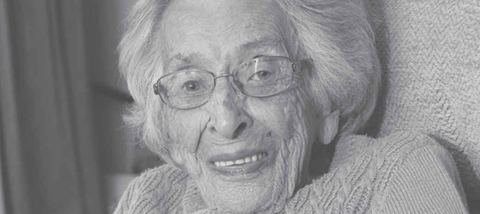The author and BBC broadcaster Tessa Dunlop unpacks the origins of Mother's Day and explains how both the Second World War and American influence helped popularise what was formerly a purely religious day

Mum always talked about how Mother's Day was more significant than Father's Day, because the latter was just a commercial invention, whereas Mother’s Day had religious roots.
At the time I didn’t really listen, but then I wrote The Century Girls where I interviewed six women who are all over 100 years old. I spent a huge amount of time with these women and decided to ask them about their memories of Mothering Sunday.
The original religious festival - which does date back to the 16th century which is held on the fourth Sunday of Lent and is all about visiting your ‘Mother Church’ was once a big deal. But I was surprised to discover that many of the Century Girls actually remembered nothing about Mothering Sunday! Pamela who is 101 said, “My son now gives me a great bunch of flowers, but I don't remember anything about Mothering Sunday between the wars.”
We know that between the First World War and Second World War, there was a huge decline in the number of people going to church. So some of the more Bohemian century girls I spoke to - those for whom church wasn't such a big deal in their in their daily and weekly lives – did not celebrate mothering Sunday.
One of my favourite century girls is Edna Crips who is 103 (pictured, above). Church was absolutely paramount in her childhood. Everything that she did, that was of importance, almost always happened through and with and by her Mother Church. Her father died before she went to school and her mother was a domestic servant. So as soon as she turned 14, she became a domestic servant and lived away from home. In that role, you were hardly ever entitled to a day off. But you were on Mothering Sunday. It was a chance to go back to your mother church, to celebrate the day that had also become a more general maternal celebration, to return home to your mother. Edna remembers very keenly this Mother's Day celebration. It was a religious day which Edna cherished. But she admits at the time it was dying out.
Mothering Sunday got its big commercial reboot around the time of the Second World War. American culture had their own Mother's Day, inaugurated as a national holiday by Woodrow Wilson in 1914. It wasn’t a religious festival, but during the war, those who were serving in the armed forces overseas got very fond of their mums. Imagine - you're in another part of the world fighting on the front line. Your mother suddenly takes on a huge significance and Mothering Sunday morphs into Mother's Day.
American Mother's Day is the second Sunday of May whereas ours still tracks that Easter calendar. So here, it's still the fourth Sunday of Lent. And there’s even a slackening of the Lent fastidiousness. So you’re allowed to eat a bit more and celebrate a little bit better, even though you haven't quite arrived at Easter. So it's an excuse to have something of a celebration.
I think retailers were pretty quick to latched on to the fact this was going to be a potential bonanza. But I rather love the humble, stripped-back religious day and genesis of this celebration, because it doesn't demand money. I discovered this with the century girls. What people want, especially old people, is time. The six women I spoke to came from opposite ends of the financial and social hierarchy. But today, they all live very similarly. They all live in an armchair. They’re all disabled because they're so old, so it's hard for them to get around. And what they want most of all is companionship. And I think that's really the most important message on Mother's Day. It’s about showing respect and love to those women who've made a difference in your life.






























